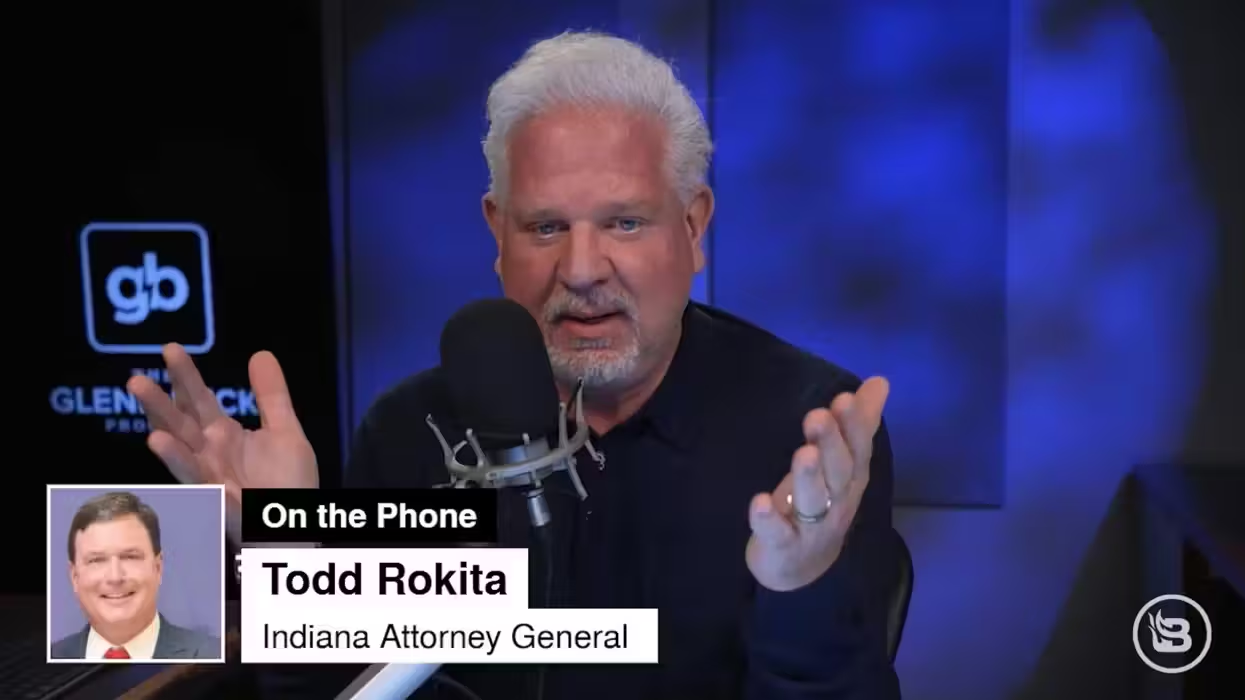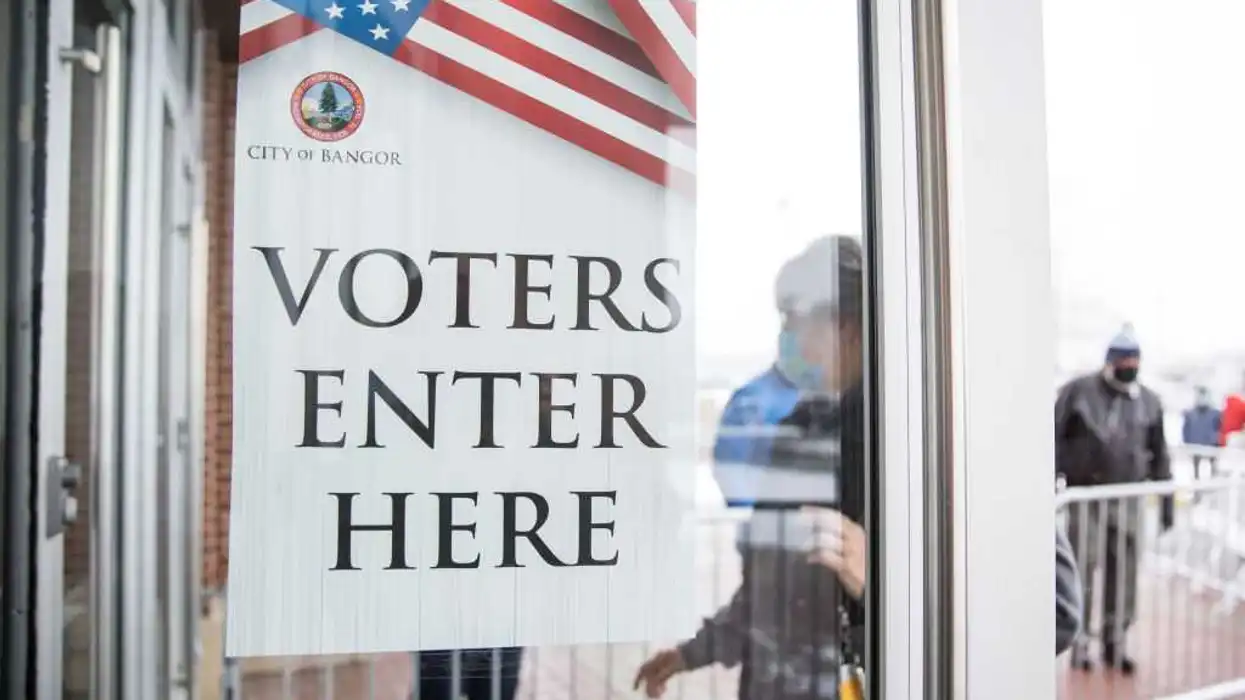© 2025 Blaze Media LLC. All rights reserved.
Obama's New Contraceptive Plan: Religiously-Affiliated Groups Can Opt-Out of Birth Control Mandate, But...
February 01, 2013
-- - Business like Hobby Lobby are not covered by the exemption - Becket Fund: Proposal "does nothing to protect the religious liberty of millions of Americans." - Bill Donohue says religious definition changes make "eminently good sense." --
The Obama administration has unveiled new rules governing the controversial contraceptive mandate, a provision that led to numerous, ongoing legal battles between faith groups and the federal government. In an updated regulatory change that was announced today by the Department of Health and Human Services, religiously-affiliated organizations will be able to opt out of providing birth control coverage. However, businesses like Hobby Lobby will still be forced to comply.
"Religiously affiliated organizations will be given the option of exempting themselves from the requirement of providing their employees with contraceptive access or service that they are morally opposed to," a source told CNN before the changes were made public.
The focus upon churches and affiliated organizations is evident, but there is no mention of the debate that continues to surround religious companies that are owned by individuals with faith-based objections to providing contraceptives. A Notice of Proposed Rulemaking (NPRM) released today simplifies the definition of a "religious employer." The new rules read:
The simple definition of “religious employer” for purposes of the exemption would follow a section of the Internal Revenue Code, and would primarily include churches, other houses of worship, and their affiliated organizations, as defined by Section 6033(a)(3)(A)(i) or (iii)This proposed change is intended to clarify that a house of worship would not be excluded from the exemption because, for example, it provides charitable social services to persons of different religious faiths or employs persons of different religious faiths. The Departments believe that this proposal would not expand the universe of employer plans that would qualify for the exemption beyond that which was intended in the 2012 final rules.
The administration also provides details surrounding how such an opt-out process would work. If an organization decides not to offer birth control, one proposal would be for individual employees to receive contraceptives through what CNN describes as a "third entity." This exchange would be paid for by the insurance company. Here's how the new rules explain the process:
Under the proposed accommodations, the eligible organizations would not have to contract, arrange, pay or refer for any contraceptive coverage to which they object on religious grounds.In addition, under the proposed accommodations, plan participants would receive contraceptive coverage through separate individual health insurance policies, without cost sharing or additional premiums. The issuer would work to ensure a seamless process for plan participants to receive contraceptive coverage.
A second proposal would involve larger-scale organizations that pay for their own health care (the Catholic diocese is an example). While these groups will not be forced to directly provide birth control, it will be offered up through a separate plan. The rules continue:
With respect to insured group health plans, the eligible organization would provide the self-certification to the health insurance issuer, which in turn would automatically provide separate, individual market contraceptive coverage at no cost for plan participants. Issuers generally would find that providing such contraceptive coverage is cost neutral because they would be they would be insuring the same set of individuals under both policies and would experience lower costs from improvements in women’s health and fewer childbirths.With respect to self-insured group health plans, the eligible organization would notify the third party administrator, which in turn would automatically work with a health insurance issuer to provide separate, individual health insurance policies at no cost for participants. The costs of both the health insurance issuer and third party administrator would be offset by adjustments in Federally-facilitated Exchange user fees that insurers pay.
While the rules do, indeed, clarify some uncertainty and open up the opportunity for faith-based groups to avoid the mandate, as stated, business compliance is not addressed. While it's still to early to tell how faith groups will respond to the new rules, Hobby Lobby and dozens of other businesses who are suing the government in an effort to be exempt from the mandate will likely be forced to continue their legal battles.
"Still unresolved is the issue of private employers who invoke a religious objection to providing insurance coverage for services they deem morally objectionable," Catholic League Bill Donohue said in a statement about the proposed changes. "Because the new rules have not been finalized, and there is an opportunity for further public discussion, more progress may yet be made."
These regulations are not final and may be subject to change depending upon public opinion. Read the rules in their entirety here.
This is a breaking news update. Stay tuned for updates.
Want to leave a tip?
We answer to you. Help keep our content free of advertisers and big tech censorship by leaving a tip today.
Want to join the conversation?
Already a subscriber?
Billy Hallowell is a digital TV host and interviewer for Faithwire and CBN News and the co-host of CBN’s "Quick Start Podcast."
Billy Hallowell
Billy Hallowell is a digital TV host and interviewer for Faithwire and CBN News and the co-host of CBN’s "Quick Start Podcast."
more stories
Sign up for the Blaze newsletter
By signing up, you agree to our Privacy Policy and Terms of Use, and agree to receive content that may sometimes include advertisements. You may opt out at any time.
Related Content
© 2025 Blaze Media LLC. All rights reserved.
Get the stories that matter most delivered directly to your inbox.
By signing up, you agree to our Privacy Policy and Terms of Use, and agree to receive content that may sometimes include advertisements. You may opt out at any time.





